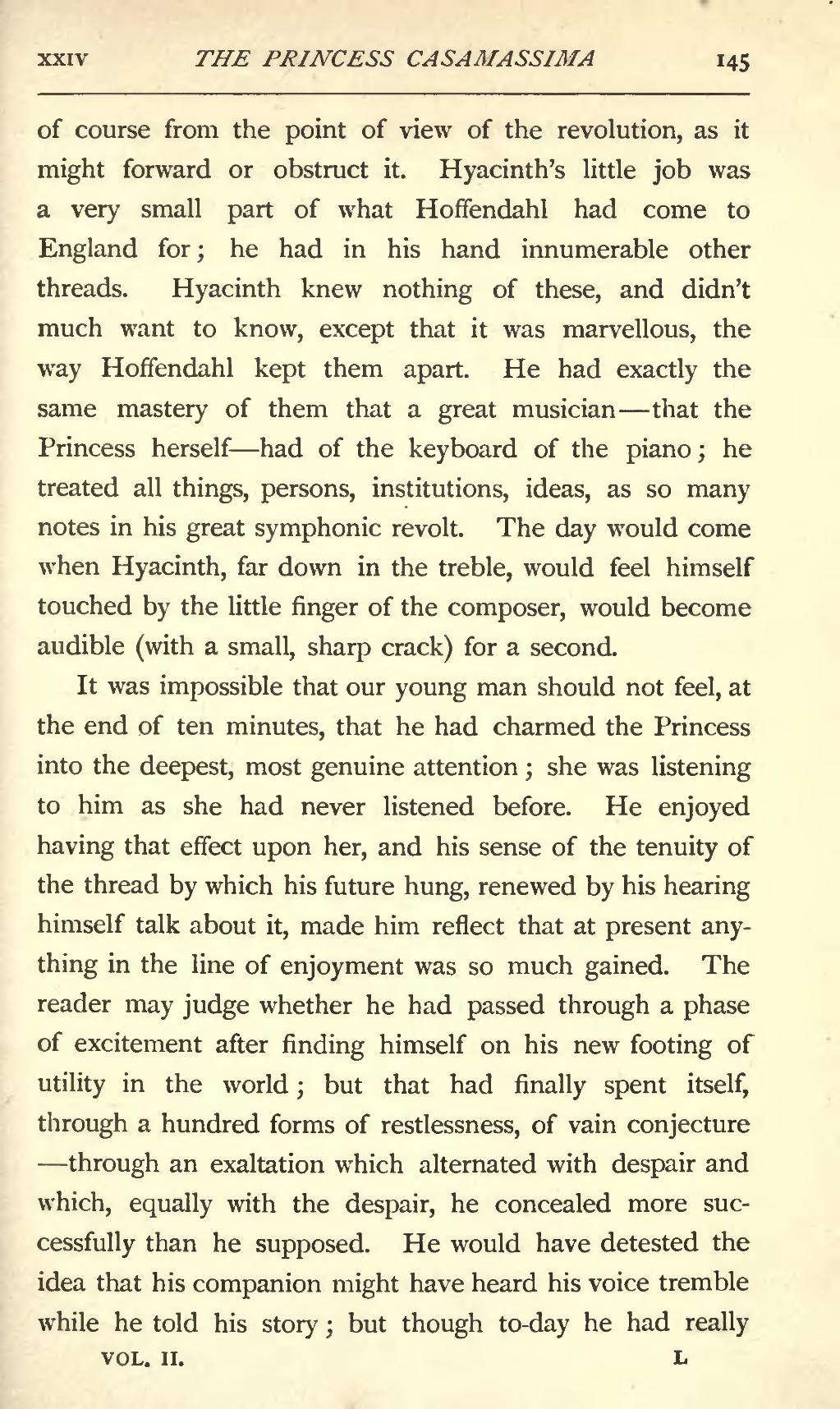of course from the point of view of the revolution, as it might forward or obstruct it. Hyacinth's little job was a very small part of what Hoffendahl had come to England for; he had in his hand innumerable other threads. Hyacinth knew nothing of these, and didn't much want to know, except that it was marvellous, the way Hoffendahl kept them apart. He had exactly the same mastery of them that a great musician—that the Princess herself—had of the keyboard of the piano; he treated all things, persons, institutions, ideas, as so many notes in his great symphonic revolt. The day would come when Hyacinth, far down in the treble, would feel himself touched by the little finger of the composer, would become audible (with a small, sharp crack) for a second.
It was impossible that our young man should not feel, at the end of ten minutes, that he had charmed the Princess into the deepest, most genuine attention; she was listening to him as she had never listened before. He enjoyed having that effect upon her, and his sense of the tenuity of the thread by which his future hung, renewed by his hearing himself talk about it, made him reflect that at present anything in the line of enjoyment was so much gained. The reader may judge whether he had passed through a phase of excitement after finding himself on his new footing of utility in the world; but that had finally spent itself, through a hundred forms of restlessness, of vain conjecture—through an exaltation which alternated with despair and which, equally with the despair, he concealed more successfully than he supposed. He would have detested the idea that his companion might have heard his voice tremble while he told his story; but though to-day he had really
